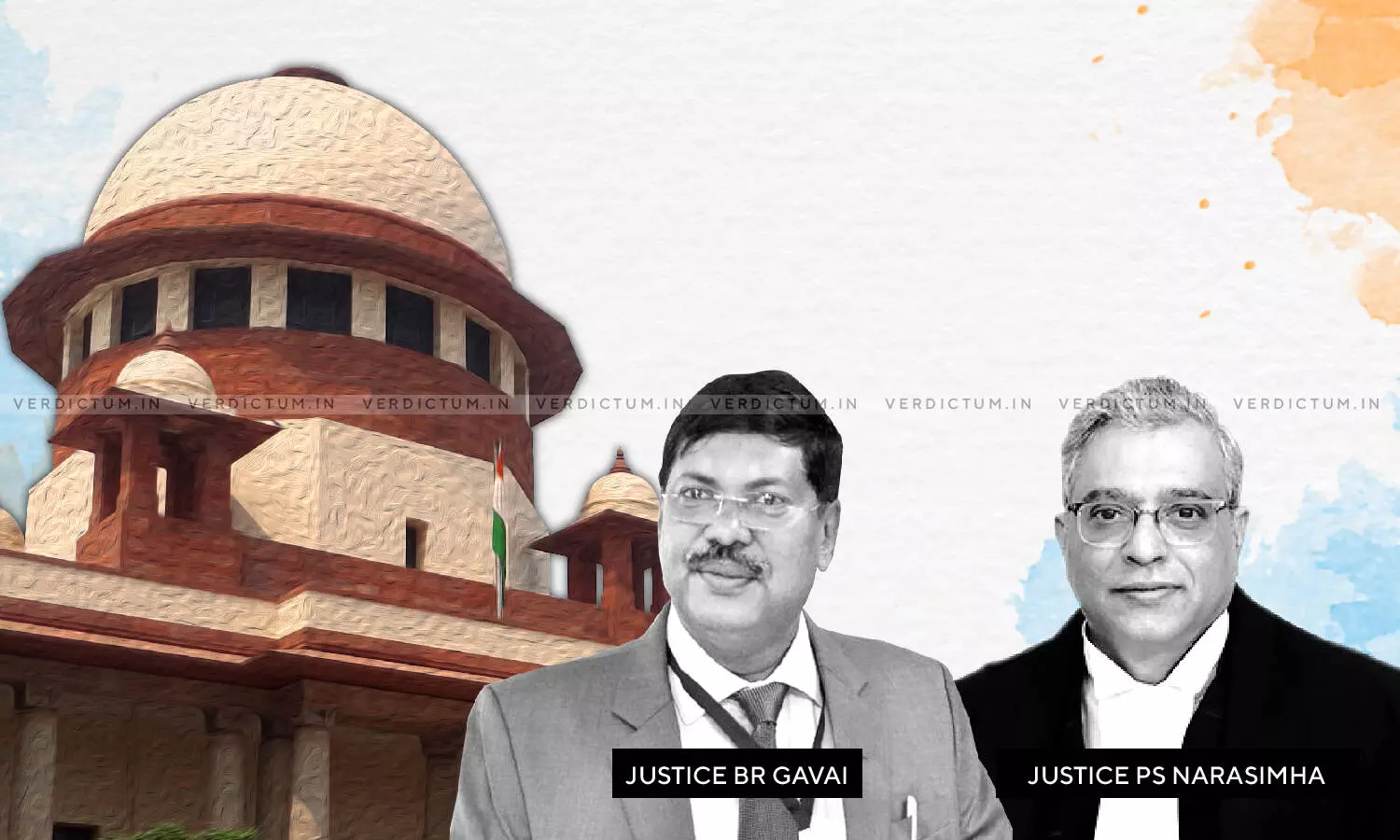
Evidence Insufficient To Conclude That Accused shared Common Intention With Others To Commit Murder: SC Alters Conviction U/S 302 To S. 304 Part II IPC
 |
|The Supreme Court altered the conviction of an accused under Section 302 to Section 304 Part II IPC as it found that there is no sufficient evidence to establish that he shared the common intention with the other accused to murder the deceased.
The Telangana High Court and a trial court had convicted four accused under Section 302 read with Section 34 of the IPC and they were sentenced to undergo imprisonment for life.
Justice B.R. Gavai and Justice Pamidighantam Sri Narasimha observed, “It is not the case of the prosecution that A-3 was along with the other accused while the deceased was dragged to the house. The deposition would reveal that after the other accused assaulted the deceased with sword, A-3 came thereafter and assaulted the deceased with stone lying there. We, therefore, find that the prosecution has not been in a position to establish that A-3 shared the common intention with the other accused to cause the murder of the deceased.”
AOR D. Abhinav Rao represented the appellants, while Senior Advocate Sirajudeen appeared for the respondents.
The Court explained that both the prosecution and defence and even the courts, did not focus on the role of the third accused. There was no oral or documentary evidence to attribute the third accused with the intent to murder the deceased. The Supreme Court stated that both the trial court and the High Court mechanically drew an inference against the third accused merely based on his presence near the scene of the offence and his familial relations with the other accused.
The Court remarked that the third accused had no intention to commit murder of the deceased for two reasons. Firstly, while every other accused took the axe and contributed to the assault, the third accused did not wield the axe at any point of time. Secondly, the third accused only had a stone in his hand. Therefore, the Court was of the view that the third accused did not share a common intention to commit the murder of the deceased.
The Court noted that “there is certainly no escape from coming to the conclusion that A-3 should have had the knowledge that the use of a stone to hit the head of the deceased is likely to cause death. However, as demonstrated before, the evidence is insufficient to deduce a conclusion that he shared a common intention with the other accused to commit the murder of the deceased.”
The Court held that the prosecution did not establish that the third accused shared the common intention with the other accused to cause the murder of the deceased.
Therefore, the Supreme Court upheld the conviction under Section 302 IPC of the accused but altered the conviction of the third accused under Section 302 to Section 304 Part II IPC.
Cause Title: Velthepu Srinivas & Ors. v. State Of Andhra Pradesh (Now State Of Telangana) & Anr. (2024 INSC 87)
Appearance:
Appellants: AOR D. Abhinav Rao, Advocates Gaurav Agrawal, Prerna Robin, Rahul Jajoo, and Devadipta Das
Respondents: AOR Rajiv Kumar Choudhry and Gaichangpou Gangmei, Senior Advocate Sirajudeen, Advocates Krishna Kumar Singh, Sri Harsha Peechara, Duvvuri Subrahmanya Bhanu, Pallavi, Kriti Sinha, Akshat Kulshreshtha, G.Seshagiri Rao, Rahul Aggarwal, Amit Pratap Singh, Lothungbeni T. Lotha, Yimyanger Longkumer